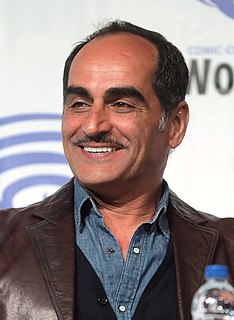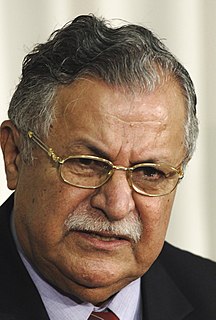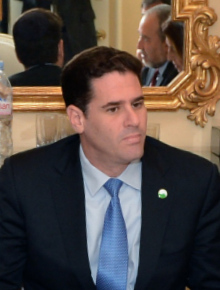A Quote by Jeremy Hunt
It is still worth talking to Iran to see if there is a way through and to prevent the huge rivalry between Saudi and Iran turning into another version of the Iran-Iraq war. That is what all countries that have influence have to be thinking about.
Related Quotes
After the revolution of 1979, Iran embarked on a policy of sectarianism. Iran began a policy of expanding its revolution, of interfering with the affairs of its neighbors, a policy of assassinating diplomats and of attacking embassies. Iran is responsible for a number of terrorist attacks in the Kingdom, it is responsible for smuggling explosives and drugs into Saudi Arabia. And Iran is responsible for setting up sectarian militias in Iraq, Pakistan, Afghanistan and Yemen, whose objective is to destabilize those countries.
The Iranians are Moslems and the Iraqi are Moslems. Both are certain that there is no God but Allah and that Mohammed is his prophet and believe it with all their hearts. And yet, at the moment, Iraq doesn't trust Iran worth a damn, and Iran trusts Iraq even less than that. In fact, Iran is convinced that Iraq is in the pay of the Great Satan (that's God-fearing America, in case you've forgotten) and Iraq counters with the accusation that it is Iran who is in the pay of the Great Satan. Neither side is accusing the Godless Soviets of anything, which is a puzzle
By accident of geography, the world's major oil resources are in Shi'ite-dominated areas. Iran's oil is concentrated right near the gulf, which happens to be an Arab area, not Persian. Khuzestan is Arab, has been loyal to Iran, fought with Iran not Iraq during the Iran-Iraq war. This is a potential source of dissension. I would be amazed if there isn't an attempt going on to stir up secessionist elements in Khuzestan.
Ironically, the single thing that has strengthened Iran over the last several years has been the war in Iraq. Iraq was Iran's mortal enemy. That was cleared away. And what we've seen over the last several years is Iran's influence grow. They have funded Hezbollah, they have funded Hamas, they have gone from zero centrifuges to 4,000 centrifuges to develop a nuclear weapon.
My advice for Obama concerning Iran is just to do what you already promised you would do, open up communications with Iran. Which is what I did after the Shah was deposed, as you know when the revolutionary government came in, I still had diplomatic relations with Iran, otherwise the hostages wouldn't have been there. We had about, as you know, 60 some diplomats in Iran, they had about the same number in Washington.
Many countries that formerly saw Israel as an enemy now see Israel as a potential partner in addressing their primary security challenges. And so first and foremost, Iran. The rise of Iran, the empowerment of Iran has created a big change in the dynamics in the region. The second was the rise of ISIS.

































